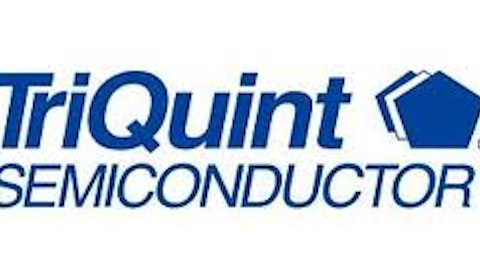
The catalyst has been the purchase of Vivendi’s majority stake. The resulting reduction in uncertainty, combined with the upcoming console refresh, has lifted shares to a multi-year high.
Yet, despite Activision Blizzard, Inc. (NASDAQ:ATVI)’s recent resurgence, there are reasons to be skeptical of the company’s long-term future.
Activision isn’t a player in mobile
Unlike its rival Electronic Arts, Activision has no major mobile games. Instead, the company has remained firmly married to the traditional gaming paradigm — consoles and PCs.
Titles like Call of Duty regularly lead the console industry, while games like World of Warcraft, Starcraft and Diablo remain immensely popular (and profitable) PC franchises.
But Activision Blizzard, Inc. (NASDAQ:ATVI) has no made attempt at breaking into the mobile gaming a world — a market of over 100 million gamers in the US alone. And it likely won’t anytime soon. On the company’s last earnings call, CEO Bobby Kotick downplayed the trend towards mobile gaming, saying that they just “don’t see anything” that would support a shift to mobile.
So far, that’s been to Activision Blizzard, Inc. (NASDAQ:ATVI)’s credit. While companies like EA and Zynga Inc (NASDAQ:ZNGA) have entered new markets, Activision Blizzard, Inc. (NASDAQ:ATVI) has been the better investment.
A new gaming paradigm?
On its face, Kotick’s observation is a bit simplistic. While Zynga has floundered, indie companies like King have made millions. Candy Crush, King’s recent megahit, is projected to bring in over $200 million in the next year, largely from in-app purchases.
At the same time, struggling Japanese gaming companies like Square Enix have planned to shift their focus to the mobile market, leveraging lesser development costs to spearhead a turnaround campaign.
But the biggest threat to Activision Blizzard, Inc. (NASDAQ:ATVI)? The industry could be on the verge of change that few see coming.
Apple and Google could dominate the console market
First with Apple Inc. (NASDAQ:AAPL)’s iOS, and later with Google Inc (NASDAQ:GOOG)’s Android, the two tech titans came to dominate the global smartphone business, squashing rivals like BlackBerry Ltd (NASDAQ:BBRY) in the process.
Could Microsoft Corporation (NASDAQ:MSFT) and Sony Corporation (ADR) (NYSE:SNE) be next? It’s certainly possible.
In June, The Wall Street Journal reported that Google Inc (NASDAQ:GOOG) is developing its own Android-powered console, following a recent trend that has seen a flurry of cheap Android consoles such as the Kickstarter-backed Ouya.
Despite initially selling out, the Ouya has been widely criticized for its technical shortcomings. But any Android-powered console from Google Inc (NASDAQ:GOOG) would not have the limitations of an indie project.
Meanwhile, Apple Inc. (NASDAQ:AAPL) has been rumored to be working on a TV for years. Such a device would likely run iOS and have access to Apple’s extensive library of apps. When (or if) the device appears, it will more or less offer an all-in-one TV-video game console.
There’s already intense developer interest for such a device. Earlier this year, Nat Brown, one of the co-creators of the original Xbox, predicted that Apple would steamroll the console players if it chose to enter the market.
Valve, a PC gaming company, is planning its own entrance into the console market with its Steam Box. Valve’s CEO Gabe Newell said he feared Apple Inc. (NASDAQ:AAPL) more than the console guys when it came to competing in the living room.
Apple has shown interest in getting more into gaming. The next version of iOS will support third-party controllers, and there are rumors that Apple is working on its own gaming controller.
The promise of NVIDIA’s Tegra chips
With controllers out of the way, the next issue is power. Surprisingly, mobile-based consoles could be much more powerful than one could imagine.
NVIDIA Corporation (NASDAQ:NVDA)’s Tegra 4 mobile chip is already capable of outputting graphics nearly on par with today’s consoles, and NVIDIA Corporation (NASDAQ:NVDA) has promised that next year’s chip (the Tegra 5) will surpass them.
Given that consoles are refreshed only every seven years or so, it seems likely that mobile chips will offer more power than the Xbox One and PlayStation 4 just a few years into their lifecycle.
NVIDIA Corporation (NASDAQ:NVDA) has always been tied to the gaming industry — its graphics cards a necessary component to any gaming-quality PC. But the company is betting big on Android.
Its upcoming handheld console, the NVIDIA SHIELD, will run Google’s mobile OS. In an interview with Forbes, the company said it’s investing heavily in Android gaming, and that it sees the platform as a dominant one in the video game landscape going forward.
Investing in Activision
In recent years, Activision has been one of the best run gaming companies in the world. Its CEO, Bobby Kotick, has smartly steered the company away from unproven business models, and has delivered consistent performance quarter after quarter.
But sticking to the tried-and-true gaming paradigm of PC and consoles could come back to haunt the company. As with phones, Apple and Google could be about to revolutionize the gaming industry in the coming years, bringing mobile games to the living room via dedicated consoles or television sets.
This trend remains in its infancy, but it’s one Activision Blizzard, Inc. (NASDAQ:ATVI) investors should definitely keep their eyes on.
The article There Are Over 100 Million Reasons to Doubt Activision Blizzard originally appeared on Fool.com and is written by Salvatore “Sam” Mattera.
Joe Kurtz has no position in any stocks mentioned. The Motley Fool recommends Activision Blizzard, Apple, Google, and NVIDIA. The Motley Fool owns shares of Activision Blizzard, Apple, and Google. Salvatore “Sam” is a member of The Motley Fool Blog Network — entries represent the personal opinion of the blogger and are not formally edited.
Copyright © 1995 – 2013 The Motley Fool, LLC. All rights reserved. The Motley Fool has a disclosure policy.





